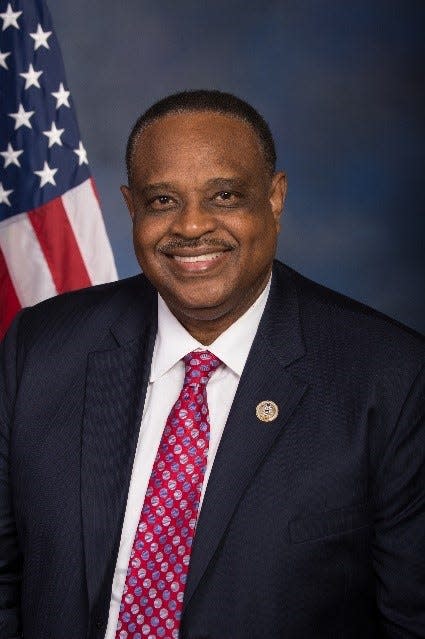COVID reveals rural broadband crisis | Opinion
Walking to the school bus in rural Florida was different during the COVID-19 pandemic.
Students didn’t actually get on the bus – they got on-line.
In rural Citrus County, which is south of my congressional district, Superintendent Sam Himmel had to improvise when COVID made remote learning necessary. She placed hot spots on buses and drove them out into remote areas so that students could come upload their lessons, then return the next day to download.
“We had to go door to door to let families know this was available,” Himmel said.
This is no way to educate children.
As the U.S. representative for Florida’s 5th congressional district, I’ve heard countless stories like these – the lack of broadband access crushing our children’s ability to learn. And it was true long before anybody heard of COVID.
Don’t forget, when it comes to rural broadband access, we’re not just talking about educational needs.
What about rural parents who were forced into a work remote situation? What about health care appointments that could only be conducted virtually? What about all the other times broadband access allows us to make informed decisions on purchases, our own welfare and other crucial life choices?
Broadband has broad benefits.
Most estimates show a little more than 90% of Florida households have broadband access. That sounds like a lot, until you do a little arithmetic. That means as many as 2 million Floridians do NOT have access. And most of them are in rural areas that are already too often ignored by policy makers.
It’s time to change that and, fortunately, we don’t have to wait on the government to solve the problem. There are already private sector providers working to bring affordable broadband access to millions more families who need it.
Just last month the Wall Street Journal featured a story on a potential private sector deal involving Windstream, UNITI and other firms that could “accelerate the build-out of broadband to as many as a million more households” in rural areas. Sounds like a good deal to me.
The government has a role to play as well. At the federal level, I strongly supported the Emergency Broadband Benefit (EBB) Program, which will provide struggling families a $50 discount off the cost of home internet access.
Look, I fight hard for rural areas while serving eight counties in north Florida. I know how difficult it is to get the attention of folks who live in larger cities when we are talking about relatively small numbers of people. And my district is both rural and minority-majority. But state and federal lawmakers must make rural broadband a priority with both public and private sector solutions.
I’ll close with a question that was recently asked of Darrell Taylor, superintendent of the 2,000-student Calhoun County school district: What difference would it have made if your county had widespread broadband during the pandemic?
“Huge,” he said, simply. “Huge.”
Buses are for bringing kids to school, not bringing school to kids.
Let’s solve the rural broadband crisis for our children’s sake.

U.S. Rep. Al Lawson represents Florida’s 5th Congressional District in the U.S. Congress.
JOIN THE CONVERSATION
Send letters to the editor (up to 200 words) or Your Turn columns (about 500 words) to letters@tallahassee.com. Please include your address for verification purposes only, and if you send a Your Turn, also include a photo and 1-2 line bio of yourself. You can also submit anonymous Zing!s at Tallahassee.com/Zing. Submissions are published on a space-available basis. All submissions may be edited for content, clarity and length, and may also be published by any part of the USA TODAY NETWORK.
This article originally appeared on Tallahassee Democrat: COVID reveals rural broadband crisis | Opinion
